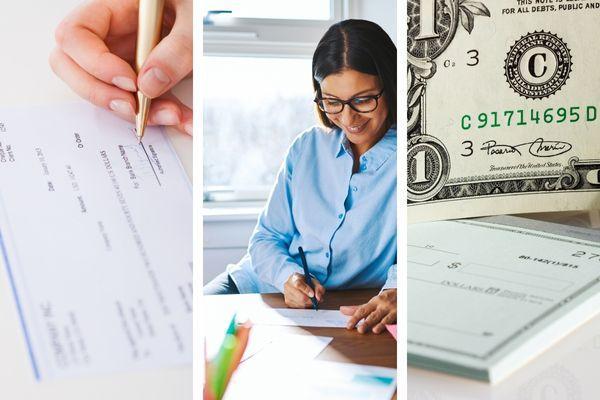
It's all too simple to misplace a check as it's just a piece of paper that might get lost in a stack or hidden in a drawer and ignored. However, determining what to do if your check resurfaces might need to be clarified.
Personal checks were formerly one of the most prevalent forms of transferring payment to another person or organization, especially for large amounts. Personal checks are now a much less common form of payment, particularly among two individuals. However, if you receive a personal check written out to you, you must keep it secure and cash it before it expires.
Try to avoid the situation where you get a personal check and are unsure what to do with it. Continue reading for essential information on how to handle a check and when does a check expire.
Contents
- When d checks expire?
- How Long Is a Check Good For?
- What if a Check Has Already Expired?
- What makes a check invalid?
- Outstanding Checks: What happens if you never cash a check?
- Unlike checks, Small World Money Transfer payments cannot be lost
When d checks expire?
In legal terms, banks are only obligated to honor checks for six months. So you found an uncashed personal check from 2015. Is it too late to make a deposit? It happens to many people: A birthday check from Lovely Aunt Emma goes uncashed and ends up in the trash bin for months or years. While cashing may be your first preference, remember that a bank is not compelled to pay a check over six months old.
Banks are only required by law to honor checks for six months. Afterwards, it is at the discretion of the bank, which may involve contacting the account owner for confirmation. On the other hand, a personal check that is several months old could fade away from the issuer's radar. Almost all checking accounts pay no interest, so most people only keep enough money in the account to pay their bills. As a result, if the forgotten check reappears unexpectedly, there may not be sufficient money in the account to cover it.
How Long Is a Check Good For?
Personal checks typically have a validity period of six months (180 days). However, company, government, cashier's, money orders, and traveler’s checks are not the same.
Technically, checks never expire. They become stale and considered outdated after a certain point, which is different from having an actual expiration date. Still, it might require some effort to recover the money owed to you. Banks develop their own policies and may decide whether or not to deal with an old check.
Checks become outdated primarily to protect the account holder. When individuals write checks, they usually have their current position in mind and expect that money to be withdrawn immediately. However, situations and bank balances can change significantly in a few months. So, there is less assurance that the funds will be available after a while. If the recipient waits too long, the check may bounce.
What if a Check Has Already Expired?
If a personal check has already expired and has passed the 6-month grace period, you have to go back to the individual or organization who gave you the check and request for it to be reissued.
Remember that this process is far from guaranteed, and it might be inconvenient for both you and the person or organization who issued the check. In some cases, you might receive a personal check from a payer who is no longer available or unwilling to give you a replacement check. This could make you unable to retrieve the payment that would have been paid before the check expired.
What makes a check invalid?
Having a check returned because a bank refuses to honor it is a bad thing. The fees charged for returned checks are significant, as is the potential for humiliation in the business community among your peers, customers, and suppliers with whom you do business regularly. The primary reason a bank refuses to cash a check is a lack of funds. Still, checks can also be denied for various reasons, including unclear or incorrect account and routing numbers, incorrect formatting, or the passage of too much time since the printed date.
Ensure that your checks are validated and cashed and include the correct elements:
THE ROUTING NUMBER:
This number at the bottom of the check specifies the bank that will issue the money.THE ACCOUNT NUMBER:
Ensure your account number is on the bottom line of the check after the routing number.CHECK NUMBER:
Each check number is unique to each transaction and is necessary to record, track or cancel a check later.
Outstanding Checks: What happens if you never cash a check?
If the payee does not deposit the check immediately, it becomes an outstanding one. This indicates that the money is still in the payer’s account. If the payer fails to keep track of his finances, he may be unaware that the check hasn't been remitted. If the payer uses some or all of the money that should have been reserved to cover the check, and the check is later cleared, the account falls in red, resulting in overdraft and NSF fees by the bank.
Unlike checks, Small World Money Transfer payments cannot be lost
There is a better way to transfer funds often, or even just once in a while, than checks. Small World Money Transfer app is safer than writing a check since it does not reveal your bank account and routing information to the recipient. Signing up for Small World Money Transfer app lets anyone make a digital payment without exposing their private account information. And, unlike checks, these payments cannot be lost.